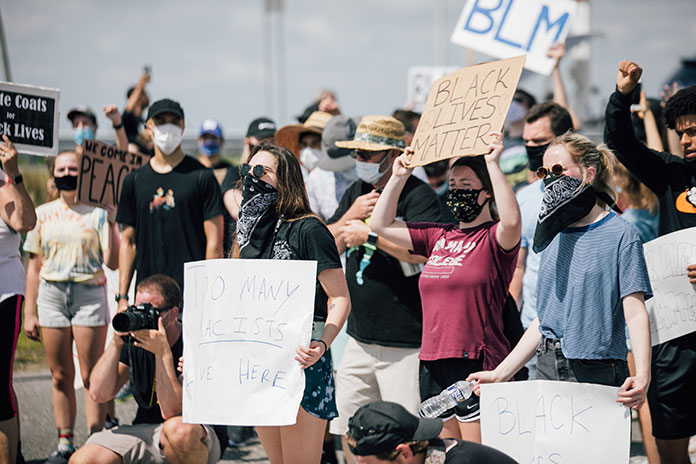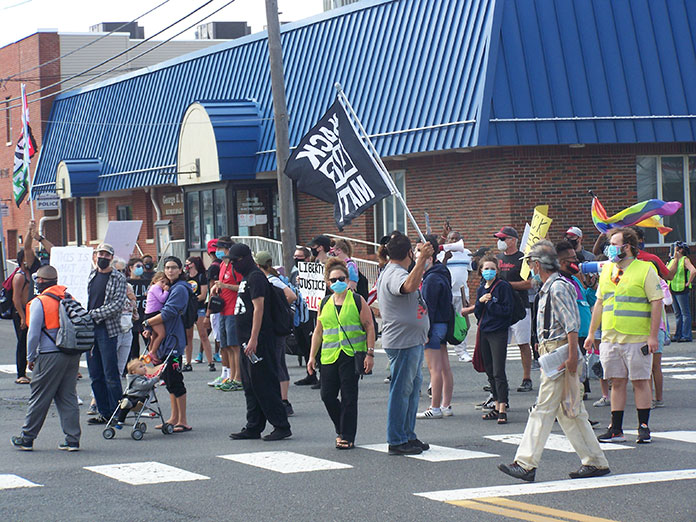
MINNEAPOLIS – When George Floyd was killed on camera by a police officer, it set off protests against police brutality. Now that the officer has been found guilty, it remains to be seen what the impact will be.
Former Minneapolis Police Officer Derek Chauvin was found guilty of all charges relating to the death of George Floyd.
Floyd died on May 25, 2020 while in police custody, accused of using a counterfeit $20 bill. He was filmed with Chauvin’s knee on his neck while he pleaded “I can’t breathe.”
The protesting spread throughout the country. Some was dangerous. Most was peaceful.
Locally, despite rumors of violence that never came to be, police walked side by side with the demonstrators.

Jackson had one of the largest demonstrations, with about a thousand attendees. Toms River, Berkeley, Howell, and Seaside Heights also had walks and speeches.
There were calls for unity, but also there were calls for action.
Protesters passed out election registration forms. A local religious group arranged meetings between police officials and people of color to help bridge the divide.
The protesters said that George Floyd wasn’t the first victim of police brutality, and likely won’t be the last, mentioning people like Breonna Taylor.
While there was prejudice that led to the deaths of these black people in America, supporters of law enforcement warned that there is also prejudice thinking that all officers are bad cops.

Chauvin’s sentencing is yet to come. He faces up to 40 years in prison for murder, up to 25 years and up to 10 years for second degree manslaughter.
The difference in the murder charges is that the second-degree charge means that Chauvin assaulted Floyd illegally but didn’t intend to kill him; and the third degree charge means that Chauvin acted with reckless disregard for another’s life. The manslaughter charge means that Chauvin caused Floyd’s death through negligence.
Shortly after the verdict, a statement was released by the County Prosecutors Association of New Jersey:
“Today, the jury delivered justice not only for the family and loved ones of George Floyd, but for the millions of Americans of color who for decades have experienced a different reality of uneven treatment by law enforcement. What we witnessed in Minneapolis last May was not policing, but was murder and an absolute abdication of the values of protecting and serving. With this verdict, our country can begin the long and complex process of healing, which we know will also involve continued dialogue between communities and law enforcement, as well as ongoing police reform, increased transparency, and accountability. We thank the Jury for their service.”






